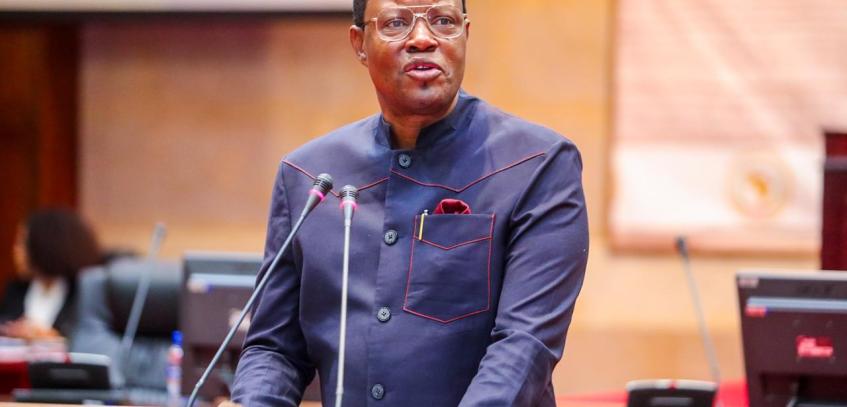Members of the Pan-African Parliament have underscored the critical need for political and social stability to achieve the dream of a highly integrated and economically prosperous Africa.
The Parliament has reiterated its commitment to facilitate the effective implementation of African Union (AU) policies, to promote intra-African trade, and to advocate for the ratification and domestication of the Free Movement of Persons (FMP) in AU member states. This came to light during the presentation and adoption by the Plenary of a report on the working session between the African Union Economic, Social and Cultural Council (ECOSOCC) and the Pan-African Parliament Committee on Trade, Customs and Immigration PAP Working Session on Advancing Free Movement in Africa.
The working session, held in March 2024, focused on enhancing understanding and support for the ratification of the Protocol to the Treaty establishing the African Economic Community relating to free movement of persons, right of residence, and right of establishment through parliamentary engagement. It aimed to build knowledge, assess key issues, and formulate actionable strategies for mobilizing support for the FMP.
Presenting the report, Hon. Mc Henry Venaani, Deputy Chairperson of the Committee on Trade, Customs, and Immigration matters addressed the floor and was clear on the direction to be taken. He called on fellow Parliamentarians to prioritize the issue in their home countries. “We know what needs to be done. It is us that go and become hostile when we go back to our domestic parliaments, to go and push the PAP agenda. “How many of our countries present this report in our parliaments? The job of advocacy cannot be the job of the heads of state – ratification is the job of a government and heads of state. But we should thrive at least in advocacy, making sure that we sensitize our legislatures back home that we need to do things differently for a better Africa,” he urged.
Hon. Venaani said the biggest elephant in the room is the existence of big institutions and terminologies that are not given effect to work by those meant to accelerate issues through them. He challenged Members of the Pan-African Parliament to return to the Pan-African Parliament with clear feedback on progress made in advancing free movement protocol. “I want to urge legislatures, when they go back to their countries, when we come back next season – let's know how many countries are willing to ratify, how many countries have even discussed these reports of free movement of persons in their own parliaments.”
The Plenary also a presentation from Ms. Yavi Madurai, founder of the African Prosperity Fund, who provided an overview of the historical context of one of the AU’s cornerstone ideals: free movement on the continent. Her presentation prompted a lively debate among parliamentarians, representatives of member states, and AU organs on how to collectively advance free trade and movement ideals in Africa.
Ms. Madurai highlighted a 2022 project aimed at creating awareness and ensuring the domestication and implementation of the movement protocol. She noted, "There has not been enough ratification to enable implementation and rollout.” Despite 33 member states signing the protocol, only four have ratified it. “The misalignment is what we are dealing with as a continent today,” Madurai stated.
She emphasized that the concept of free movement is not new, citing historical evidence of migration and trade in Africa long before colonial times. For example, the ruins of Gedi in Kenya, dating back to the 13th century, revealed trade with global partners such as the Chinese and Italians. Similarly, Kilwa Kisiwani in Tanzania was a trade hub from the 13th to the 15th centuries, with archaeologists finding coins from Great Zimbabwe.
Madurai argued that intra-African trade, akin to today’s African Continental Free Trade Area (AfCFTA), existed long before colonial borders were established. She referenced the Oxford encyclopedias, noting, “It is likely that the human species started spreading on the planet within and outside Africa between 2 and 2.5 million years ago.” This suggests that Africa pioneered movement, migration, and trade. Madurai challenged the parliamentarians to address the misalignment preventing effective implementation. She emphasized the need for Africa to function effectively at the center of global trade, leveraging its vast resources.
-Ends-








